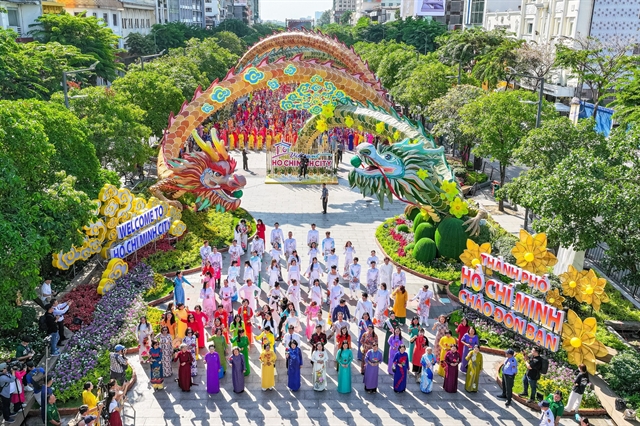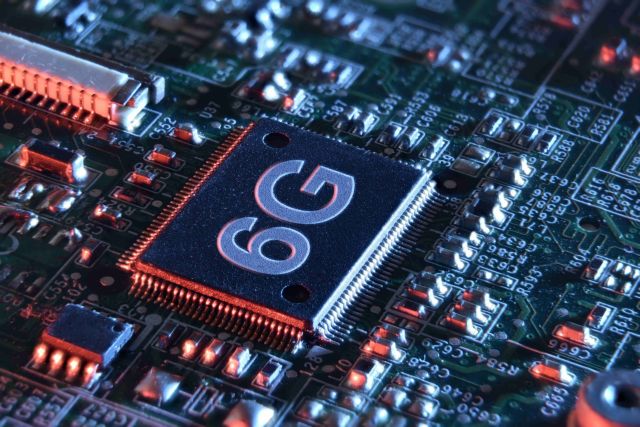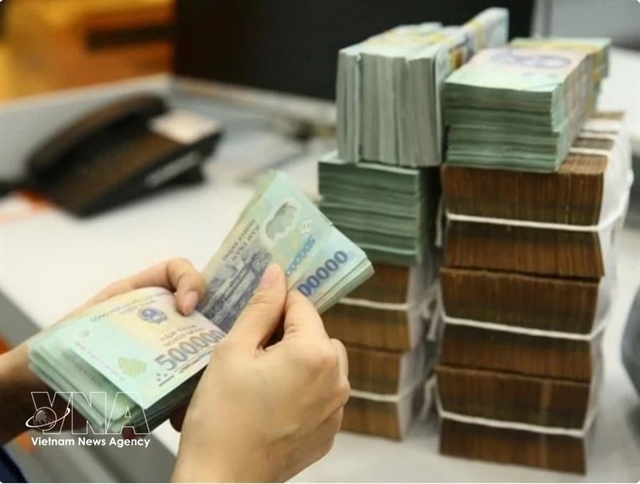 Economy
Economy

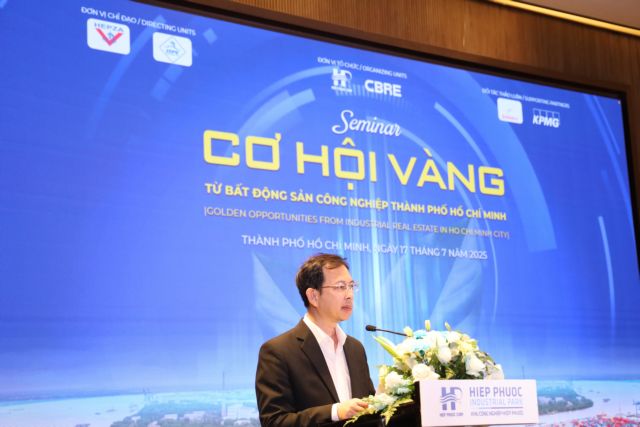 |
| Trần Việt Hà, deputy head of the HCM City Export Processing and Industrial Zones Authority, speaks at the seminar. — Photo courtesy of ITPC |
HCM CITY — With abundant clean land, clear legal frameworks, and a growing talent pool, the new HCM City (comprising former HCM City, Bình Dương and Bà Rịa-Vũng Tàu) has become a prime destination for industrial real estate investors, delegates said at a seminar held in HCM City on July 17.
At the seminar, titled “Golden Opportunities in HCM City’s Industrial Real Estate,” Trần Việt Hà, deputy head of the HCM City Export Processing and Industrial Zones Authority, noted that following its merger with Bình Dương and Bà Rịa-Vũng Tàu, the city now has 66 export processing zones (EPZs) and industrial parks (IPs), covering a total of more than 27,000 hectares.
Under the development vision through 2050, the city plans to expand this to 105 zones with over 49,000 hectares, positioning itself as the country’s leading industrial hub.
“Between 2025 and 2030, HCM City’s EPZs and IPs aim to attract between US$20 billion and $21 billion in investment, with an average investment density of $8-10 million per hectare and a targeted disbursement rate of 70 per cent of total registered capital,” he said.
“We are focused on attracting investment into four key industries and prioritising high-tech, high-value-added and environmentally sustainable sectors.
Strategic and emerging industries such as electronics–semiconductors, artificial intelligence, machine learning, big data, blockchain, biotechnology, new materials and environmental industries are also being targeted.”
Hà added that, in line with the city’s sustainable development goals, authorities are piloting a transformation model for selected industrial parks, most notably the transition of Hiệp Phước Industrial Park into an eco-industrial zone.
“This model encourages enterprises to participate in symbiotic ecosystems, adopt circular economy practices and apply new technologies to generate greater value for investors,” he said.
Huỳnh Bảo Đức, general director of Hiệp Phước Industrial Park, said the park still has 250 hectares of land available for investment.
Located in the former HCM City, Hiệp Phước Industrial Park stands out with rare advantages - a large, clean land bank in a prime location and a fully established legal framework. As the city’s largest industrial park, it offers comprehensive infrastructure, modern facilities and direct access to three international seaports, making it an ideal destination for investors seeking both strategic positioning and high operational efficiency, he said.
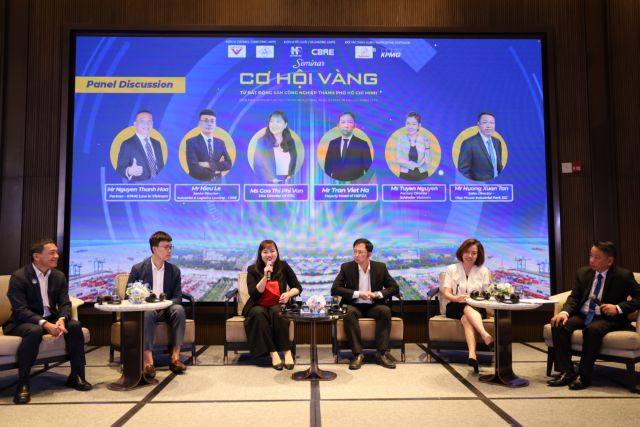 |
| Panelists highlight investment opportunities in HCM City’s industrial real estate at the seminar. — Photo courtesy of ITPC |
Cao Thị Phi Vân, deputy director of the HCM City Investment and Trade Promotion Centre, described the new city as a unique case of a multi-pillar economy. It brings together HCM City's financial and commercial strengths, Bình Dương’s industrial base, and Bà Rịa - Vũng Tàu’s seaport logistics, agriculture, and coastal tourism potential.
“This convergence enables the formation of a closed-loop intra-regional value chain from production and logistics to finance, consumption, and services. It reduces transaction costs, enhances competitiveness, and makes the city more appealing to international investors,” Vân said.
Lê Trọng Hiếu from CBRE Vietnam said that the country’s industrial real estate market in the first half of the year has been impacted by US reciprocal tax policies, causing businesses to be more cautious in leasing decisions. As a result, land absorption rates have declined in both northern and southern regions.
However, demand for ready-built factories and warehouses remains strong.
Hiếu noted that the quality of the local workforce remains one of the top concerns for foreign investors when selecting a location.
HCM City has long had a competitive labour force, and with the addition of Bình Dương and Bà Rịa - Vũng Tàu, the population now exceeds 14 million - most of whom are well-trained and capable of handling complex production tasks. This meets the needs of large multinational corporations.
He added that the administrative expansion also offers investors more competitive land rental options across the new city. — VNS

